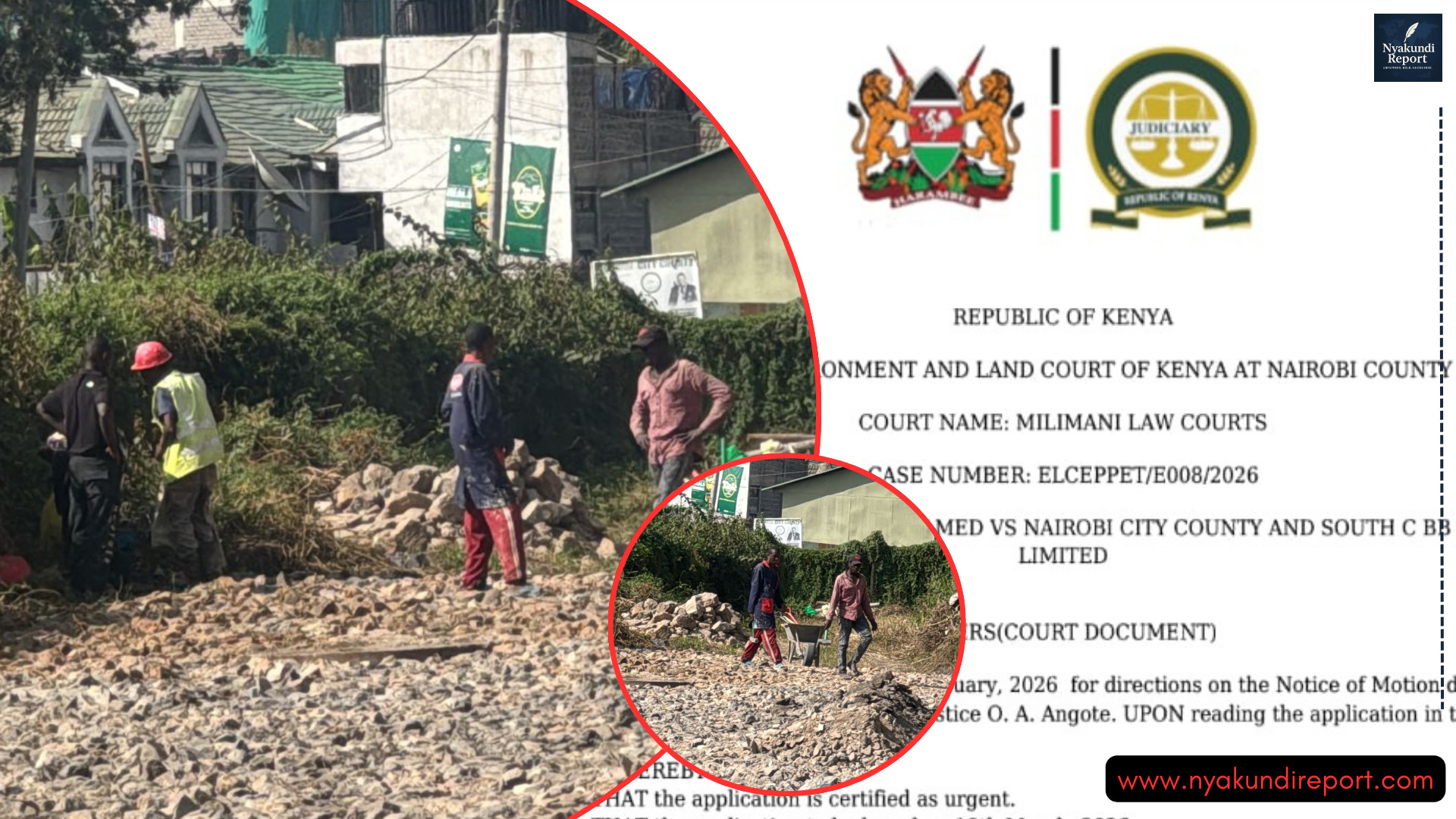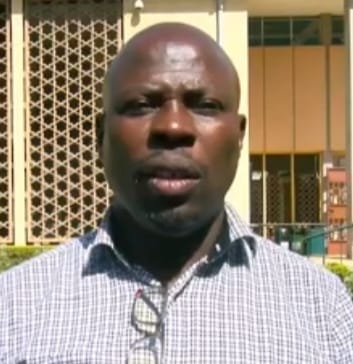When a long-time client received a text message from Absa Bank Kenya earlier this week, alerting her that four withdrawals totaling KSh 40,000 had been processed from her account at an ATM she had never used, she found herself thrust into a quagmire of internal investigations, conflicting instructions, and law enforcement referrals that have exposed not only the fragility of the bank’s operational systems but also the widening gap between its public assurances and the lived realities of its customers.

For years, Absa Bank Kenya has positioned itself as a leading financial institution, known for its technological platforms and extensive branch network but in recent months, a growing chorus of clients has begun to recount a different experience, one characterized by digital failures, unresponsive service points, and bureaucratic procedures that frequently compound rather than resolve financial dilemmas.
Social media feeds are replete with narratives of failed transactions, mobile banking glitches, and account irregularities, painting a portrait of an institution that, while prominent in name and brand recognition, often falters in execution, leaving clients to navigate confusion and stress with minimal institutional support.
Unusual Withdrawals
The ordeal for this particular client commenced on Monday, 1 September 2025, when she received not one, but four immediate notifications that KSh 10,000 had been withdrawn from her account at an ATM in Donholm, Nairobi, all within a narrow span of minutes.

Alarmed by the unusual activity, she contacted the bank immediately, only to be told that her account would be blocked while an investigation was initiated, and that she should visit the Sarit Center branch the following day to engage with the fraud unit in person.
Upon arrival, she was met with instructions that, while ostensibly procedural, carried a subtle insistence that she refrain from involving the police, as the internal unit would supposedly examine the matter thoroughly and provide clarity in due course.
“They told me they would handle it internally and that I didn’t need to go to the police. I thought that was normal, so I went home and waited,” she recounted.
Bank Response
By Wednesday, 3 September 2025, the client had received a call from Samuel, a member of Absa Bank Kenya’s forensics investigation unit operating from the offices along 5th Ngong Avenue, who informed her that a PIN had been used to facilitate the withdrawals, rendering the transaction “valid” under the bank’s operational framework.
What might have been a procedural clarification instead became a source of profound frustration, as she was left with a sense of disbelief and confusion, unsure how her personal identification number had been compromised, and increasingly concerned by the bank’s apparent unwillingness to acknowledge a potential breach of security.
“I kept asking how this happened if I didn’t make the withdrawals but they said the PIN had been used so it was valid. I didn’t know what to do next,” she told this outlet.
Feeling compelled to pursue recourse beyond the bank’s internal channels, she proceeded to Spring Valley Police Station later that day to formally report the incident, marking a pivot in the unfolding sequence of events in which procedural instructions and institutional assurances collided with the practical reality of financial vulnerability.
The police report, though essential for accountability, initiated yet another layer of procedural complexity, as the matter would now require coordination between the law enforcement authorities and the bank’s forensic team, illustrating the multidimensional difficulties that clients often encounter when attempting to resolve transactional anomalies in Kenya’s banking sector.
On Friday, 5 September 2025, the client received a call from Samuel, the forensics official at Absa Bank Kenya, asking her to visit their office to review CCTV footage from the ATM where the withdrawals had occurred.
When she arrived, she was shown the footage, but only a side angle of the person conducting the transactions was visible, leaving the individual’s face completely obscured.
She requested a copy of the footage to retain for her records and to provide to law enforcement, but the bank refused, instructing her that she would need to obtain the footage through a formal police report.
This left her in a position where she could neither independently verify the identity of the person who withdrew the money nor have evidence to support her case with the authorities, forcing her to rely on the bank and law enforcement to progress the matter while repeatedly moving between offices and procedures.
“They showed me the footage, but I couldn’t see the person’s face, and they refused to give me a copy. They told me to go to the police to get it. I felt like I was going in circles,” she said.
Following her visit to the bank’s forensics office, the client proceeded to the Directorate of Criminal Investigations (DCI) Headquarters along Kiambu Road, hoping that reporting the matter there would bring clarity and progress.
Upon arrival, she joined a queue of other individuals waiting to be attended to, the air heavy with the tension and impatience that often accompanies public service offices, and she spent time explaining the situation once again to officers who were largely unfamiliar with the details of her case.
After being told that her report could not be processed at that location because the ATM in question fell under a different jurisdiction, she was directed to the DCI office in Nairobi Central.
This meant she would need to gather her documents, leave the familiar surroundings of Kiambu Road, navigate the city’s traffic, and present herself at a new location, all while managing the stress of an unresolved financial loss.
“I waited in line at DCI HQ, explained everything again, and then they told me to go to Nairobi Central because that’s where the ATM was. I felt like I was being passed around with no answers,” she said.
Since being redirected to Nairobi Central DCI offices, the client has heard virtually nothing from Absa Bank Kenya.
Blocked Account
Her account remains blocked, preventing her from accessing not only the disputed funds but also the balance she still holds, leaving her effectively cut off from her own finances.
Calls to her account manager have gone unanswered, emails remain without reply, and follow-up inquiries to the forensics unit have produced little more than vague assurances that the matter is “under review.”
While the procedural complexity of fraud investigations is acknowledged in theory, the lack of meaningful engagement from the bank leaves clients like her feeling isolated and unsupported, as though the responsibility for resolution rests entirely on their shoulders.
“I thought I was banking with a reputable institution but now it feels like no one cares. My account is blocked so I can’t access my own money and I don’t know if I can even trust this bank anymore. I have done everything I can from my side, and they haven’t helped at all,” she lamented.
Systemic Failures
This incident is neither an isolated anomaly nor an unpredictable fluke, but rather, it is part of an observable pattern in which clients have repeatedly encountered delayed resolutions, mismanaged communications, and the tangible consequences of under-resourced service frameworks.
Over recent months, Absa Bank Kenya has grappled with reports of mobile banking outages, failed USSD transactions, extended queues at branches, and opaque loan approval processes, all of which contribute to a pervasive sense of unreliability and, in some cases, financial exposure.
Absa Bank Grapples With Surge of Complaints Over Deteriorating Customer Service
Public commentary on social media platforms has increasingly illuminated these patterns, creating a digital archive of customer grievances that collectively illustrate operational and managerial challenges within the institution.
The convergence of technological failures, procedural rigidity, and inconsistent service delivery points to systemic weaknesses that extend beyond individual branches or isolated incidents.
Operational structures designed to mitigate fraud and ensure transactional security appear to be functioning in a manner that prioritizes procedural compliance over timely and transparent client resolution, and managerial oversight, while present, seems insufficient to reconcile the discrepancies between promised service standards and operational realities.
The result is an environment in which client trust is gradually eroded, and the reputational stakes for the bank rise with every unresolved grievance.
From a regulatory standpoint, matters such as unauthorized withdrawals, delayed dispute resolution, and opaque communication channels attract attention not only from law enforcement but also from oversight institutions such as the Central Bank of Kenya (CBK), the Kenya Bankers Association (KBA) and the Capital Markets Authority (CMA), all of which monitor financial institutions for adherence to prudential standards and client protection guidelines.
In this instance, the protracted timeline, the repeated referrals, and the partial disclosure of evidence illustrate how lapses in operational coordination and client interface can magnify the risk of reputational damage while simultaneously exposing structural vulnerabilities that could warrant regulatory intervention.
As this latest incident unfolds, it contributes to a broader narrative of operational, managerial, and procedural fragility at Absa Bank Kenya, where recurring transactional anomalies, delayed responses, and convoluted dispute resolution mechanisms combine to undermine client confidence.
The intersection of technological vulnerabilities, internal procedural rigidity, and fragmented coordination with law enforcement agencies creates a scenario in which even well-intentioned clients find themselves navigating a labyrinthine system with limited recourse.
Whether Absa Bank Kenya will take decisive measures to streamline its internal processes, enhance transparency, and restore the confidence of clients remains to be observed, but for the individuals affected, the current experience is a stark reminder of the tangible consequences that operational lapses can have on financial security and public trust.





































